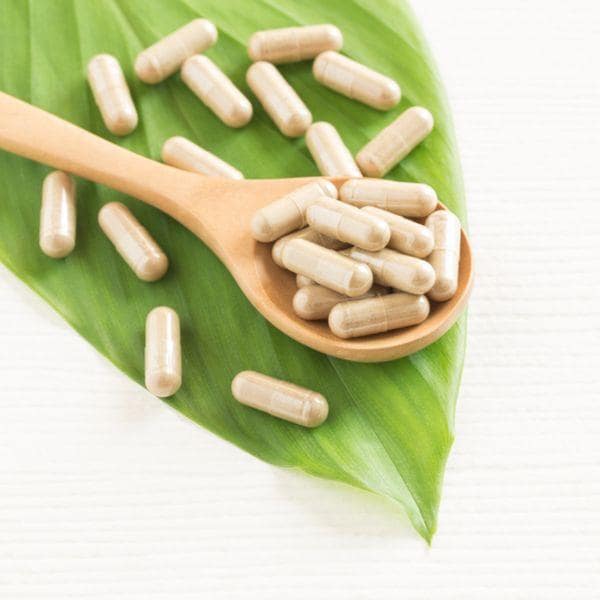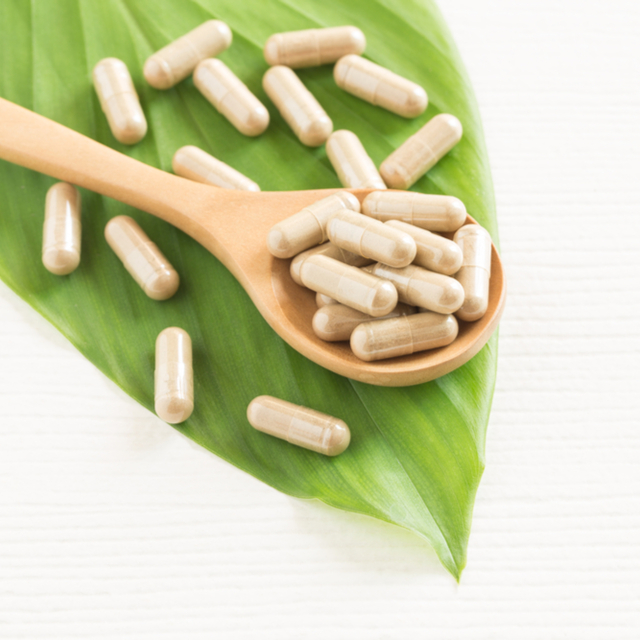Science has proven that fermented foods can be incredibly beneficial. Many are probiotic-rich, delivering healthy microbes that reinforce the health of the digestive system, which can have positive influences throughout the body. But should we assume the same applies to fermented supplements?
They’re often touted as a healthier, more bioavailable way to get your supplemental nutrition. Here’s what we know—and what we don’t yet know—about fermented supplements.
What are Fermented Supplements?
To understand fermented supplements, let’s start with food fermentation. Food fermentation is a natural process during which carbohydrates (starch and sugar) are converted into alcohol or acids by microorganisms like bacteria or yeasts. This process is responsible for giving us delicious foods like yogurt, kimchi, sauerkraut and kombucha, as well as wine and alcoholic beverages.
Fermented supplements are made with ingredients that have undergone a similar process. The ingredients are typically fermented via lactic acid fermentation, ethanol fermentation, or with the aid of bacteria, yeasts or enzymes.1
Do Fermented Supplements Contain Probiotics?
Since many fermented foods contain probiotics, it’s logical to wonder if fermented supplements contain them. The answer isn’t so simple. In fact, not all fermented foods contain live probiotics. It depends on what they’re made from, how they are prepared, and how they are stored.
Take a look at the product label to determine if a fermented supplement contains probiotics. You may find probiotics listed in the ingredients simply as “active cultures,” and some labels include the specific probiotic strains in the list of ingredients. If you aren’t sure, you can always reach out to the maker of your supplement and ask. But if probiotics are your primary goal, you may be better off with a probiotic supplement instead. To learn how to select the best probiotic supplement for you, read The 4 Steps to Choosing a Probiotic.
The Potential Benefits of Fermentation
In addition to encouraging the growth of friendly bacteria that can go on to nourish gut health, the fermentation process is thought to “unlock” the nutritive potential of many common foods by breaking down nutrients within them, which experts say may make them easier to digest.
For example, when milk is fermented, lactose breaks down into simpler components, which is why some people with lactose sensitivities are able to enjoy fermented milk products like kefir or yogurt despite not being able to drink milk without side effects.2
Fermentation can also help reduce “anti-nutrients” in certain foods, such as phytic acid found within grains, nuts and legumes. Phytic acid is known as a food inhibitor that it may limit the absorption of some nutrients, including iron, zinc and calcium.3
Are Fermented Supplements Better than Regular Supplements?
While the fermentation of certain foods has some scientifically proven advantages, more studies are needed to determine the impact of fermentation on specific supplement ingredients. We can’t make the assumption that fermented ingredients are always better because nature-sourced ingredients each react differently to the fermentation process since they each contain compounds that are unique to that ingredient.
Before you decide to take a fermented supplement, take a closer look at the science behind the supplement. Some ingredients have been more thoroughly researched than others. For example, fermented turmeric may be more bioavailable than standard turmeric because the fermentation process makes its beneficial compounds water-soluble vs. their typical fat-soluble state. And unlike many other fermented supplement ingredients, fermented turmeric has been used in actual human studies.4
Other turmeric supplements, on the other hand, may be best taken after a meal containing some fat or oil to assist with absorption. Either way, you still get the benefits—it’s just another way to get those benefits. Learn more about the many benefits of turmeric in What is Turmeric & What are the Benefits of Turmeric?
One of the best qualities of fermented supplements may be that they are often made using natural food ingredients. Most experts agree that it’s a good idea to get the majority of your nutrients from real food sources, but you don’t need fermentation to do that. You could also focus on eating a more balanced diet, and fill nutrient gaps with non-fermented supplements made with real food ingredients.
Expert Wellness Advice You Can Count On
At Swanson, we sweat the details—the science, the research and latest trends—so you don’t have to. Our healthy obsession means you can focus on what matters most to you, and leave it up to us to put the “er” in healthier.
If you enjoyed this post, check out The Science Behind Your Pill—Real Food Vitamins and More than a Trend: 5 Health Trend Pairs that Should Stay.

About Lindsey Toth, MS, RD
Registered Dietitian, Swanson Health Products
Lindsey is a nationally-recognized registered dietitian and nutritionist with a soft spot for pie. She empowers people to take charge of their health by finding the balance between the pleasure and nourishment in food.
Her philosophy is that you should take care of your body because it’s the only permanent home you have. It’s what inspired her to pursue a career in nutrition and, ultimately, led her to Swanson Health Products.
Sources
1Fermented Formulas: Traditional Processing Method Appeals to Modern Consumers. Nutraceuticals World. https://www.nutraceuticalsworld.com/contents/view_online-exclusives/2019-04-23/fermented-formulas-traditional-processing-method-appeals-to-modern-consumers/
2Hertzler, et al. DOI: 10.1053/jada.2003.50111
3Gupta, RK, DOI: 10.1007/s13197-013-0978-y
4Sang-Wook, et al. DOI: 10.1186/1472-6882-13-58
*These statements have not been evaluated by the Food and Drug Administration. These products are not intended to diagnose, treat, cure or prevent any disease.




